Effective Supplication for Overcoming Bad Habits and Addictions
Islamic Prayers | Seeking spiritual support to overcome bad habits and sins? Initiate change with Allah’s permission through effective supplications and advice using verses from Surah Al-Ma’idah.
- Effective Supplication for Overcoming Bad Habits and Addictions
- The Place of Bad Habits and Traits in Islam
- The Power of Repentance (Tawbah) and Supplication (Dua)
- The Guidance and Healing (Shifa) of the Holy Quran
- Relevant Verses from Surah Al-Ma'idah and Their Meanings
- A Narrated Spiritual Practice Method
- Complementary Steps for Change
- Final Word
The Place of Bad Habits and Traits in Islam
Human beings, by nature, are inclined towards both good and evil. In our life journey, sometimes consciously and sometimes unconsciously, we may turn towards certain wrong behaviors, bad traits, or habits. These are obstacles that harm the individual, their family, and society, disturb their spiritual peace, and most importantly, create distance between them and Allah. Besides major sins explicitly forbidden by Islam, such as alcohol consumption, gambling, adultery (zina), lying, backbiting (ghibah), and extravagance (israf), numerous other negative traits like laziness, uncontrolled anger, and arrogance (kibr) can also negatively impact our lives. Islam views such bad habits and traits as diseases of the self (nafs) and offers both spiritual and practical solutions to overcome them.
Falling prey to such habits can occur in moments when one’s willpower weakens, succumbing to the whispers of the nafs and Satan (Shaytan). However, Islam never advises despair. On the contrary, no matter how deep in sin one might be, it encourages the servant to turn sincerely to their Lord, repent (make tawbah), and seek His help. The door of Allah’s mercy is always open, and He does not turn away His servants who turn to Him. What matters is recognizing the mistake, feeling remorse, and making a firm decision not to return to the same mistake again.
The Power of Repentance (Tawbah) and Supplication (Dua)
The first and most crucial step in the journey of purification from bad habits and sins is “tawbat an-nasuh,” meaning sincere and definitive repentance. Repentance is not merely saying “I repent” with the tongue, but also feeling deep remorse in the heart, immediately abandoning that sin or bad habit, and resolving never to do it again in the future. If the sin involves the rights of others (huquq al-‘ibad), seeking forgiveness from the wronged person is also a condition of repentance. Sincere repentance erases the traces of past sins and offers the person a chance to start with a clean slate.
Dua (supplication), on the other hand, is the servant’s greatest weapon and refuge in this difficult struggle. Realizing their helplessness and need, the servant raises their hands to their Lord, asking Him for help, strength, willpower, and steadfastness. Overcoming bad habits is not easy; they are situations that challenge the will and tend to recur. At this point, dua strengthens the servant’s connection with Allah, attracts His help, and provides spiritual resilience. Allah Almighty promises in the Holy Quran, “Call upon Me; I will respond to you” (Surah Ghafir, 40:60), signaling that the door of supplication is wide open.
The Guidance and Healing (Shifa) of the Holy Quran
The Holy Quran is not just a book of faith for Muslims, but also a guide in all aspects of life and a cure (shifa) for spiritual ailments. Allah Almighty states, “And We send down of the Qur’an that which is healing and mercy for the believers…” (Surah Al-Isra, 17:82). Reading the verses of the Quran, reflecting on their meanings, and acting upon its rulings brings peace to hearts, strengthens faith, and distances a person from sins. It has been narrated or experienced by scholars that certain chapters (surahs) and verses (ayahs) are particularly effective for specific spiritual difficulties.
Relevant Verses from Surah Al-Ma’idah and Their Meanings
Regarding deliverance from bad habits, especially destructive sins like alcohol consumption and gambling that harm individuals and society, the verses in Surah Al-Ma’idah are noteworthy. These verses strongly warn believers against such evils and emphasize that they are the work of Satan.
Surah Al-Ma’idah, Verse 90:
Arabic Script:
يَا أَيُّهَا الَّذِينَ آمَنُوا إِنَّمَا الْخَمْرُ وَالْمَيْسِرُ وَالْأَنصَابُ وَالْأَزْلَامُ رِجْسٌ مِّنْ عَمَلِ الشَّيْطَانِ فَاجْتَنِبُوهُ لَعَلَّكُمْ تُفْلِحُونَ
Transliteration:
Yā ayyuhal-ladhīna āmanū innamal-khamru wal-maysiru wal-anṣābu wal-azlāmu rijsun min ʿamalish-shayṭāni fajtanibūhu laʿallakum tufliḥūn.
Meaning:
O you who have believed, indeed, intoxicants, gambling, [sacrificing on] stone alters [to other than Allah], and divining arrows are but defilement from the work of Satan, so avoid it that you may be successful.
Surah Al-Ma’idah, Verse 91:
Arabic Script:
إِنَّمَا يُرِيدُ الشَّيْطَانُ أَن يُوقِعَ بَيْنَكُمُ الْعَدَاوَةَ وَالْبَغْضَاءَ فِي الْخَمْرِ وَالْمَيْسِرِ وَيَصُدَّكُمْ عَن ذِكْرِ اللَّهِ وَعَنِ الصَّلَاةِ فَهَلْ أَنتُم مُّنتَهُونَ
Transliteration:
Innamā yurīdush-shayṭānu an yūqiʿa baynakumul-ʿadāwata wal-baghḍā’a fil-khamri wal-maysiri wa yaṣuddakum ʿan dhikrillāhi wa ʿaniṣ-ṣalāti, fahal antum muntahūn.
Meaning:
Satan only wants to cause between you animosity and hatred through intoxicants and gambling and to avert you from the remembrance of Allah and from prayer. So will you not desist?
Surah Al-Ma’idah, Verse 92:
Arabic Script:
وَأَطِيعُوا اللَّهَ وَأَطِيعُوا الرَّسُولَ وَاحْذَرُوا فَإِن تَوَلَّيْتُمْ فَاعْلَمُوا أَنَّمَا عَلَى رَسُولِنَا الْبَلَاغُ الْمُبِينُ
Transliteration:
Wa aṭīʿullāha wa aṭīʿur-rasūla waḥdharū, fa in tawallaytum faʿlamū annamā ʿalā rasūlinal-balāghul-mubīn.
Meaning:
And obey Allah and obey the Messenger and beware. And if you turn away – then know that upon Our Messenger is only [the duty of] clear notification.
These verses clearly show that intoxicants and gambling are not just individual sins but also lead to social unrest and enmity, and prevent a person from remembering Allah and performing acts of worship. Therefore, a believer wishing to break free from such habits should deeply reflect on the meanings of these verses and strive to obey Allah’s command.
A Narrated Spiritual Practice Method
In some sources and among the populace, a spiritual practice method using these verses 90, 91, and 92 of Surah Al-Ma’idah is mentioned, believed to be a means of deliverance from bad habits. The steps of this method are narrated as follows:
- Writing: On Friday, after the Jumu’ah prayer, verses 90, 91, and 92 of Surah Al-Ma’idah are written in a clean bowl, on a plate, or on paper. (Traditionally, it is mentioned that this is done with saffron ink or similar natural, clean substances.)
- Washing: These written verses are carefully washed off with clean rainwater or pure water, mixing the ink into the water.
- Reciting: Over this prepared water, the same three verses of Surah Al-Ma’idah are recited 70 times and blown upon.
- Preparing: While in a state of ablution (wudu), dough is kneaded using clean wheat flour and this spiritually prepared water, and bread is baked from this dough.
- Feeding: This prepared bread is given to the person suffering from bad habits or sins such as alcohol consumption, gambling, usury (riba), adultery (zina), lying, or tale-carrying (namimah). It is recommended to start this feeding process on a Saturday and continue for 3, 5, or more days depending on the situation.
- Repeating: If the desired result is not fully achieved with the first application, it is mentioned that this process can be repeated for three consecutive Fridays.
It is believed that this practice, by the permission of Allah, will create a feeling of coldness and distance in the person’s heart towards those bad habits and sins. However, a very important point must be remembered here: Such practices do not replace the fundamental principles of Islam like sincere repentance, supplication, exerting willpower, distancing oneself from bad environments, and seeking expert help if necessary, but can be seen as spiritual support. There is no definitive evidence that this specific method is established through an authentic hadith directly from Prophet Muhammad (peace be upon him) or his companions; it is more likely based on the experiences of scholars or spiritual figures, or some traditional practices. Therefore, when resorting to such methods, it is essential to know that the ultimate cure comes from Allah, to trust in Him (tawakkul), and to act in accordance with the general principles of Islam.
Complementary Steps for Change
In addition to spiritual practices, there are practical steps to take to overcome bad habits:
- Determination and Resolve: Making the decision to change and remaining steadfast in that decision is the most fundamental step.
- Avoiding Bad Environments: Staying away from friends and environments that encourage sin or bad habits is critically important.
- Associating with Good and Righteous People: Good friends and role models positively influence and support the individual.
- Filling Free Time with Beneficial Activities: Keeping the mind and body busy with beneficial activities, knowledge, worship, or sports leaves no room for bad thoughts and desires.
- Seeking Professional Help: Especially in cases of addiction (alcohol, gambling, substances, etc.), seeking help from an expert (doctor, psychologist, spiritual counselor) may be necessary. Islam values knowledge and treatment.
- Patience and Persistence: Change is a process, and there can be ups and downs. What matters is getting back up after stumbling, not falling into despair, and continuing to seek help from Allah.
Final Word
Bad habits and traits are among the biggest obstacles in a person’s spiritual journey. However, with Allah’s mercy and help, it is possible to overcome these obstacles through sincere intention, strong willpower, continuous supplication, and the right steps. The relevant verses of Surah Al-Ma’idah are divine warnings that guide us in this struggle. Narrated spiritual practices can be a means (wasilah), but what is essential is repentance from the heart, seeking refuge in Allah, and striving to live a life according to His commands. Let us not forget that Allah never abandons a servant who strives sincerely and seeks His help. May my Lord grant us all purification from our bad habits and a life lived upon the straight path (istiqamah).
Bibliography
- The Holy Quran, Surah Al-Ma’idah (5:90-92), Surah Ghafir (40:60), Surah Al-Isra (17:82).
- Al-Ghazālī, Abū Ḥāmid Muḥammad ibn Muḥammad. Iḥyāʾ ʿUlūm al-Dīn (The Revival of the Religious Sciences). Cairo: Dār al-Shaʿb, n.d. (Especially sections on Repentance, Disciplining the Soul, and Actions of the Heart).
- Ibn Qayyim al-Jawziyya, Shams al-Dīn Abū ʿAbd Allāh Muḥammad. Al-Dāʾ wa al-Dawāʾ (The Disease and the Cure). Beirut: Dār al-Kutub al-ʿIlmiyyah. (On diseases of the heart and spiritual methods of treatment).
- Al-Nawawī, Abū Zakariyyā Yaḥyā ibn Sharaf. Riyāḍ al-Ṣāliḥīn (The Meadows of the Righteous). (Sections on Repentance, Patience, Remembrance [Dhikr], and Supplication [Dua]).
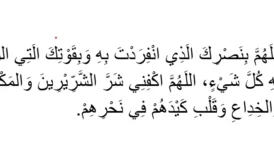
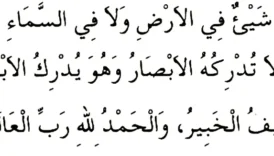
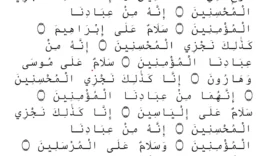
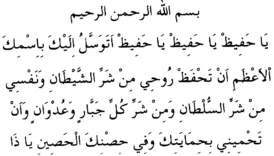
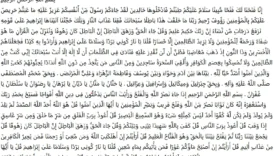

Good https://is.gd/tpjNyL